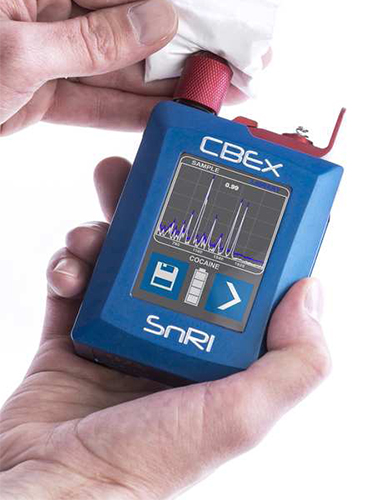Dallas campus researchers present study findings to FDA
 Traditionally, compounded pharmaceuticals are quality checked through a “double-check”
system where a second pharmacist does a paper check to ensure that compounded pharmaceuticals
are prepared accurately. Unfortunately, the literature is replete with reports of
compounding errors related to the use of the double-check method of quality control.
With that in mind, a team of researchers from the Texas Tech University Health Sciences
Center (TTUHSC) School of Pharmacy, Cook Children’s Health Care System in Fort Worth and Children’s Medical Center in Dallas have been working to improve this practice that is so common to compounding
and reduce the number of compounding errors.
Traditionally, compounded pharmaceuticals are quality checked through a “double-check”
system where a second pharmacist does a paper check to ensure that compounded pharmaceuticals
are prepared accurately. Unfortunately, the literature is replete with reports of
compounding errors related to the use of the double-check method of quality control.
With that in mind, a team of researchers from the Texas Tech University Health Sciences
Center (TTUHSC) School of Pharmacy, Cook Children’s Health Care System in Fort Worth and Children’s Medical Center in Dallas have been working to improve this practice that is so common to compounding
and reduce the number of compounding errors.
The researchers proposed a novel approach to assuring the quality of compounded pharmaceuticals through the use of hand-held Raman spectrometers. The results of their project, titled “Raman Spectroscopy: A Sensitive and Specific Technique for Determining the Accuracy of Compounded Pharmaceutical Formulations,” was recently published in the Journal of Pediatric Pharmacology and Therapeutics (21:413-8, 2016).
Because the study findings drew the attention of the U.S. Food and Drug Administration (FDA), School of Pharmacy researchers Claudia Meek, Ph.D., Trey Putnam, Ph.D., and Richard Leff, Pharm.D., were invited to speak about the study and its findings Dec. 15 at the FDA headquarters in Silver Springs, Maryland. More than 50 FDA officials — including several FDA directors — were invited to attend the presentation, which was part of FDA’s Critical Path Innovation Meetings.
Putnam said these preliminary studies demonstrated that the novel technique provided “robust quantitative information on the identity and the concentration of the formulation’s components.” In conclusion, he added, the investigators found that utilizing hand-held Raman spectrometers as a quality control measure is accurate, quantitative, rapid and cost-effective.
“The dialogue during the meeting was robust,” Putnam said. “FDA is interested in watching the future directions of our research.”
Related Stories
Celebrating Veterans: TTUHSC’s General Martin Clay’s Legacy of Service and Leadership
From his initial enlistment in the Army National Guard 36 years ago to his leadership in military and civilian health care management roles, Major General Martin Clay’s career has been shaped by adaptability, mission focus and service to others.
Texas Tech University Health Sciences Center School of Nursing Named Best Accelerated Bachelor of Science in Nursing Program in Texas
The TTUHSC School of Nursing Accelerated Bachelor of Science in Nursing (BSN) program has been ranked the No. 1 accelerated nursing program in Texas by RegisteredNursing.org.
TTUHSC Names New Regional Dean for the School of Nursing
Louise Rice, DNP, RN, has been named regional dean of the TTUHSC School of Nursing on the Amarillo campus.
Recent Stories
National Academy of Inventors Names TTUHSC Faculty Senior Members
The National Academy of Inventors (NAI) has designated two current and one former TTUHSC faculty researchers as Senior Members.
The John Wayne Cancer Foundation Surgical Oncology Fellowship Program at Texas Tech University Health Sciences Center Announced
TTUHSC is collaborating with the John Wayne Cancer Foundation and has established the Big Cure Endowment, which supports the university’s efforts to reduce cancer incidence and increase survivability of people in rural and underserved areas.
TTUHSC Receives $1 Million Gift from Amarillo National Bank to Expand and Enhance Pediatric Care in the Panhandle
TTUHSC School of Medicine leaders accepted a $1 million philanthropic gift from Amarillo National Bank on Tuesday (Feb. 10), marking a transformational investment in pediatric care for the Texas Panhandle.
